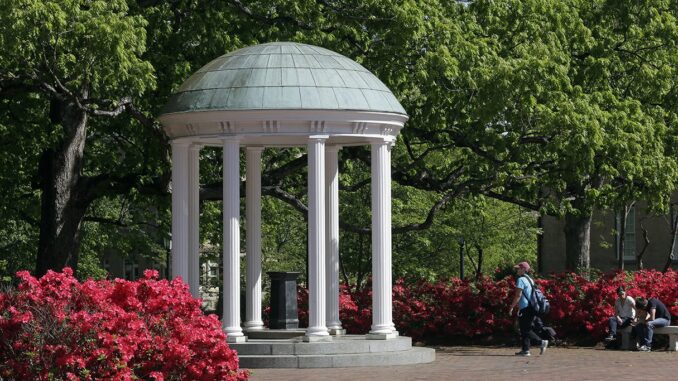
RALEIGH — The College Pulse and the Foundation for Individual Rights in Education (FIRE) have released the latest College Free Speech rankings for institutions across the United States.
College Pulse describes itself as a survey research and analytics company dedicated to understanding the attitudes, preferences and behaviors of today’s college students.
FIRE is a nonpartisan, nonprofit organization that does work “defending and sustaining the individual rights of all Americans to free speech and free thought.”
“More than three in five students (63%) expressed worry about damaging their reputation because of someone misunderstanding what they have said or done, and just over one in five (21%) reported that they feel a lot of pressure to avoid discussing controversial topics in their classes. Twenty-two percent reported that they often self-censor,” according to the report’s highlights.
Additionally, roughly three-in-five students reported they wouldn’t feel comfortable publicly disagreeing with a professor about a controversial topic or expressing an unpopular opinion to their peers on a social media account using their real name.
In its conclusion, the report noted that “at least 40% of students identified important societal topics — including abortion, COVID-19 vaccine mandates and mask mandates, gun control, police misconduct, racial inequality, and transgender issues — as difficult topics to have an open and honest conversation about.”
According to this year’s report, for the second time in three years, the University of Chicago was the top-ranked school. Kansas State University, Purdue University, Mississippi State University and Oklahoma State University rounded out the top five.
Columbia University was the lowest-scoring school with a Speech Climate rating of “Abysmal.” The University of Pennsylvania, Rensselaer Polytechnic Institute, Georgetown University and Skidmore College are also ranked in the bottom five.
Institutions in North Carolina that made the top 25 include the University of North Carolina at Greensboro (ranked seventh), NC State University (ninth), and the University of North Carolina at Charlotte (13th).
North Carolina school rankings beyond the top 25 placed University of North Carolina Chapel Hill at 26th, Duke University at 109th, Davidson College at 116th and Wake Forest University at 131st.
In 2021, Duke University, the University of North Carolina at Chapel Hill and NC State University ranked in the top 25 for overall free speech. In FIRE’s 2020 report, Davidson College was given a red light in 2020 but improved to yellow in the 2021 rankings.
Overall school scores can range from 0-100 and are created from a composite score of 10 sub-components: Comfort Expressing Ideas, Tolerance for Liberal Speakers, Tolerance for Conservative Speakers, Acceptability of Disruptive Conduct, Administrative Support for Free Expression, and Openness to Discussion of Specific Political Topics.
Additional areas examined include scholars supported by the administration during a free expression controversy from 2019 to present, scholars sanctioned during a free expression controversy from 2019 to present, successful disinvitations from 2019 to present, and FIRE’s rating of the school’s speech code policies.
The rankings are based on responses from 44,847 students currently enrolled students at more than 200 colleges. Liberal students eclipsed all other political affiliations, making up around 53% of all respondents.
Changes made to this year’s report included the incorporation of new sub-components such as Mean Tolerance (the average of Tolerance for Liberal Speakers and Tolerance for Conservative Speakers), and Tolerance Difference, which is calculated by subtracting Tolerance for Conservative Speakers from Tolerance for Liberal Speakers and then taking the absolute value.
Another change was the standardization of rankings to make the average 50 with a standard deviation of 10.
The report also included data from Fire’s Scholars Under Fire database and Campus Disinvitation database to expand the measurement of administrative behavior.
A report from FIRE released at the end of August showed the Scholars Under Fire database had documented “426 attempts to penalize collegiate scholars for their expression since 2015” and that “an alarming 74% of the attempts were successful.”
